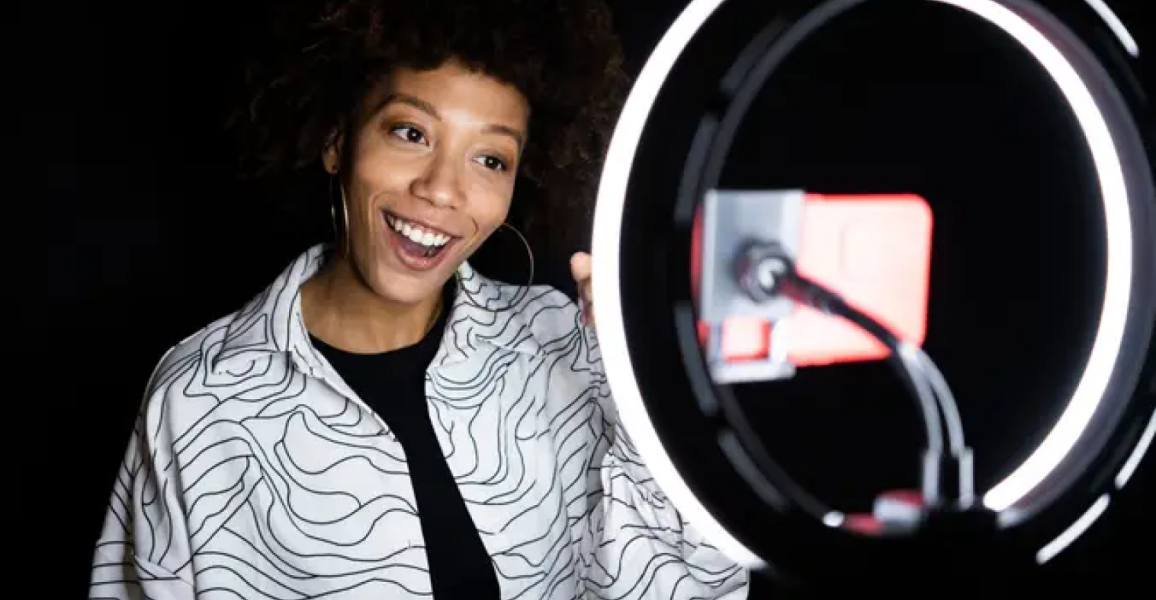What inspired you to join Thinkific?
When I was in university, I set the lifelong intention to positively impact the lives of millions of people, if not billions, through a for-profit enterprise. So, I was looking for a company with purpose, ambition, and the intention to positively change the world. When I met two of Thinkific’s founders, Greg and Miranda, I thought, “This is that business – Thinkific has the potential to change the world.” I was right.
You recently embarked upon a mission to add 50,000 followers on Instagram within 90 days. What inspired you to do this and how does this relate to Thinkific’s mission?
I once met with a creator to talk about using Thinkific Payments. He quickly turned the conversation, asking me questions about what he could do to sell more courses. Before answering his questions, I asked him why he wanted to talk about that. He said he wasn’t selling enough to support his family. At that moment I realised we needed to be doing more to help creator educators sell.
I’ve noticed the creators with the most sales have large, engaged audiences. Those with the least sales don’t have an audience. My mission to reach 50,000 followers is to learn how to build an audience, so I can teach others how to do the same, and in turn, teach them to sell enough to provide for their families and reach more students.
How has Thinkific embodied the distinction of marketing funnels versus transformation funnels and embedded it into its offerings?
In my first few months at Thinkific, I was talking with a customer who said he chose Thinkific because it is “the platform for those that live to teach.” He was right. Enabling creator educators is at the core of our business. That makes us think about marketing funnels a bit differently.
The transformation funnel is about the impact a creator makes on a student from their first interaction to their tenth purchase. They help students make a transformation. So, when we build tools for selling education, we build them to enable that transformation. And, it means we’re creating for a creator-educator and not for a marketer. We focus on simplifying the setup process, making choices simple, and finding ways for them to express their unique genius.
We focus on simplifying the setup process, making choices simple, and finding ways for them to express their unique genius.
How does spending time with creator educators impact your day-to-day role and vision for the company?
I love spending time with our customers. They are such an impressive group of people. For example, I recently spent time with Mina Irfan, creator of The Universe Guru who lives in Texas. She has built a spectacular business helping women harness their Goddess Energy to have more money, bliss, pleasure, and inspiration.
Another creator-educator I see a lot is Brandon Doerksen, who lives in Idaho and teaches parents how to react if their children start choking or go into cardiac arrest. Parents often reach out to let him know his training helped them save their children in an emergency.
In terms of how this impacts our vision as a company, the more time I spend with our customers, the simpler decisions about what to build and how to grow become. I’ve come to the view that our purpose is to do as much as we can to help creators get over the uncertainty of what to do next, and to provide tools to make the next step simple, so they can build thriving and sustainable businesses.
What inspired Thinkific to offer free online teaching and access to tools? How does this help its plan for growth?
Our customers inspired us to do it. There's no playbook for building a small business, and certainly not one in an industry as new as the creator economy. That creates an uncertainty block. So, we created an accelerator to help creators get past the block and on to growing their businesses and reaching more students. The accelerator has been a driver of growth for us in the same way that our customers build businesses selling education. Just like our customers, Thinkific makes education a primary part of the way we go to market.
In addition, we’ve been able to grow by simplifying the onboarding process of new creators and teachers with Stripe. Stripe’s onboarding removes the need for us to build a new form for each user, while simultaneously making sure we always collect the right information.
How has Thinkific evolved to create a better experience for both its teachers and students?
We've invested more in tools to help creator educators sell their courses and share their unique genius. We recently launched Communities, a creator-owned learning environment where students can participate in an interactive learning experience. Community has become an increasingly important part of education, and this new environment makes it easier for creators to interact with their audience on one platform that is already connected to their course.
With Stripe, we’re releasing local payment methods customised to a country to make the payments feel familiar and authentic. This has made it easier for us to avoid building new integrations and has created a better experience for teachers and students.
With Stripe, we’re releasing local payment methods customised to a country to make the payments feel familiar and authentic. This has made it easier for us to avoid building new integrations and has created a better experience for teachers and students.
Where do you see Thinkific’s partnership with Stripe evolving in the future?
We made a deliberate choice to go all in with Stripe. We began our relationship with Stripe as a user of Stripe Connect to develop our own payments system, including processing individual transactions. We then added Stripe Billing, as a large portion of our gross merchandise value is subscriptions, and enabled both the Smart Retries and Adaptive Acceptance features. We then added the hosted onboarding form and, most recently, Affirm, Klarna, and AfterPay.
We’re looking to build the first purpose-built tax product for creator educators to help them scale their impact on the world in a way that increases the GDP of the internet. We appreciate all that Stripe can create, and the meaningful relationship we have built because of that.
You mentioned that Thinkific Payments was built upon a Stripe foundation to work at the intersection of education and commerce. Can you discuss how a Stripe foundation helped Thinkific achieve this?
Thinkific is the platform for creator educators to build their business, and Stripe helps bring that platform to life. In this vein, Stripe's mission and Thinkific's mission align well.
Despite Thinkific being a relatively large platform, we're still a small payments company, and without Stripe, we would not have made it to market as quickly as we did. We move much more quickly with Stripe than we would with anyone else. Stripe allows us to turn on new markets instantly and move at the pace that meets our customers’ growing and changing needs. I'd estimate we move twice as fast as we would with any other platform.
Despite Thinkific being a relatively large platform, we're still a small payments company, and without Stripe, we would not have made it to market as quickly as we did. We move much more quickly with Stripe than we would with anyone else.

